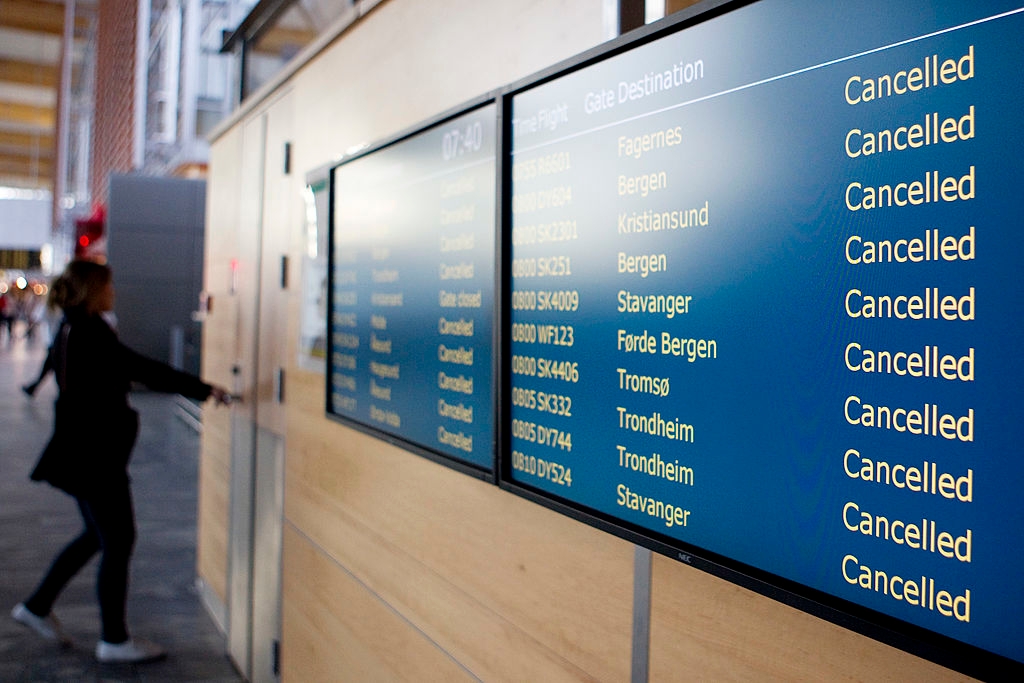Remember the Eyjafjallajökull volcano in Iceland? When it erupted in 2010, it caused unprecedented disruption. Millions of people were stranded in various corners of the world. Europe’s airspace was shut down. And airlines were left with an estimated £1.2bn bill. Needless to say this is all small beer by today’s standards of financial loss. But can the response to that eruption teach us anything about the mistakes that have been made in response to the pandemic?
The circumstances might be different but there are many similarities between the reactions to the two events. Ten years on, a big initial scare and a mixture of insufficient information, arguably faulty modelling and over-cautious scientists – consulting with risk-averse politicians, with little or no knowledge of a highly-specialised area – once again make for a bad combination. But here’s the depressing news: back in 2010, the main closure of airspace ran for eight days in April of that year; after six months of Covid restrictions in the UK, we still have no light at the end of the tunnel.
In 1982, a British Airways flight over Indonesia got into trouble while flying through volcanic ash thrown up by Mount Galunggung in Java. All four of its engines shut down, but thankfully the crew were able to restart enough of them to allow for a safe landing. A blanket zero-tolerance approach to volcanic ash concentrations was adopted. This subsequently led to the completely disproportionate reaction in 2010, when the presence of a thin layer of ash (not even visible in many areas) was used to justify the closure of airspace.
From April 15 to 23 of that year, stricken passengers waited for an update. Had the cloud dispersed sufficiently to allow a resumption of flights? For over a week, the answer was no. The levels of ash had not dropped to zero, so it was no-go.
But this is where this cautionary tale really has resonance for what we are currently experiencing with the Covid policy debacle. The modelling was too cautious: the actual level of ash in the atmosphere was lower than had been predicted and it had not spread as widely. Flights could soon take off again – and lessons were learnt. There is no longer a blanket aviation ‘zero tolerance’ policy to ash. This allows aircraft to fly in areas containing low-particle concentrations and the prospect of similar disruption to 2010 is far less likely.
But if the aviation industry can learn lessons, why can’t we look back at our initial reaction to this pandemic and correct our approach? One clear thing that we should see in our response to Covid is that modelling is only as good as the data you give it. International and national bodies – particularly after a near miss – can make disproportionate decisions. Independent thought and local knowledge can be forsaken in favour of erring on the side of caution. Scientists who are comfortable in recognising and investigating further uncertainty in a hypothetical laboratory environment are ill equipped when asked by politicians who are out of their depth to make real decisions on their behalf.
Of course, a scientist won’t be thanked for getting the planes flying a day earlier if one comes crashing to the ground, killing hundreds of people. But this means there is a reverse incentive not to take risk. The result is the sequence of restriction, closure and inaction we are seeing now. We need someone brave enough to actually consider the evidence and say that the benefit of resuming normal life outweighs the risk of harm.
This is not an economic or freedom versus safety argument. Some supporters of the coronavirus lockdown policy argue that we should do all we can to save every single life that we can. Clearly this view is attractive and I have every sympathy for it. But as a medic it is clear to me that this strategy is also irrational.
In medicine, we have to make decisions every day weighing up the ‘value’ of any treatment approach. This sounds unpalatable but if it isn’t done and all your drugs budget is spent on one treatment then what about everyone else? The National Institute for Health and Clinical Excellence (NICE) has a well-worked formula to ensure as many treatments as possible are distributed fairly. It has its flaws, of course, but in truth it is the envy of most of the developed world’s medical systems. It goes without saying that if lockdown and other measures were costed for lives saved when it comes to coronavirus, NICE’s criteria would almost certainly not allow such an approach to make it off the drawing board. It would be far too costly.
So how have we come to this point with Covid-19? Decisions have been delegated to clever experts with incomplete data sets and overly risk-averse outlooks. A huge amount of harm has been caused by this failure of policy and as much as it is spun that lives have been saved, the evidence for this argument – especially when you compare Britain to other countries – is exceptionally thin.
Back in 2010, it took pressure from angry airline executives to stop the unsustainable cycle of airspace closure. The current protagonists of our Covid-19 response should learn a lesson from this: it’s time to admit they were wrong and that the approach we are adopting in Britain to deal with this pandemic is no longer sustainable.







Comments